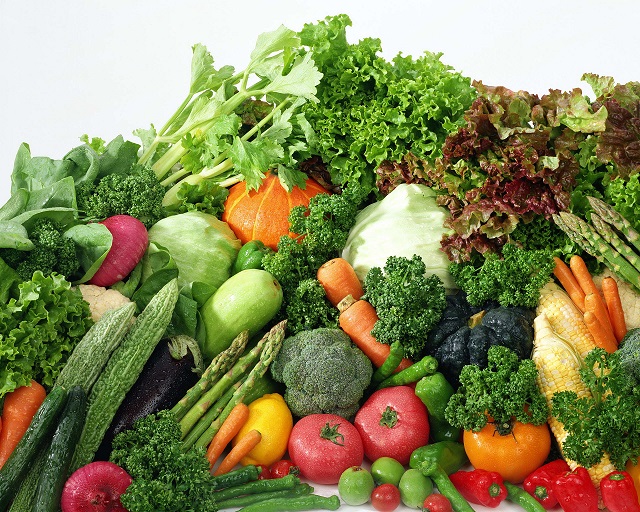It Shows when You Don’t Eat Enough Vegetables
 |
Veggies Play a Pivotal Role in
Maintaining a Healthy Body
|
Almost
1.7 million (2.8%) deaths worldwide are due to insufficient fruits and
vegetables consumption. This includes 14% of gastrointestinal cancer deaths,
11% of ischaemic heart disease deaths and about 9% of stroke deaths. Low
produce consumption is among the top 10 risk factors contributing to
attributable mortality, according to WHO reports. Have you made up your mind to
eat more fruits and vegetables after reading these horrid facts or are you still
going to continue eating plain rice, pasta and bread?
- TirednessAsking your body to protect you without equipping it with the needed weapons to fend off enemies makes you worn out and weaker. Folate (B vitamin) deficiencies can cause fatigue and this can be prevented by eating dark-leafy greens and starchy vegetables. Dehydration can also play a role in preventing effective body functions for which you can consume vegetables that contain 87 to 92% water.
- Lusterless SkinHere again, dehydration plays a pivotal role leading to dull and withered-looking skin. Many individuals don’t drink enough water and the scenario is further worsened when these people don’t eat water-filled vegetables as well. Vegetables are water-enriched helping the skin to glow and age graciously. Include abundant beta-carotenes present in carrots, spinach, orange-colored produce and sweet potatoes, antioxidant-rich vegetables and omega-3s as in cabbages.
- Frequent ConstipationVeggies have all the fiber and the water needed to flush out the toxic waste from our body. But most men and women don’t fulfill the required fiber needs of 38 grams/day and 25 grams/day respectively. Lack of exercise, decreased fluid consumption and high-fat diets are culprits for constipation. Consuming colorful veggies can supersede all these factors and prevent constipation.
- ForgetfulnessForgetting to pick your parcel from the courier guy or not remembering your friend’s phone number are clear indicators of decreased vegetable consumption. Lutein, a nutrient responsible for increased learning and memory, is available in vegetables such as tomatoes, leafy greens, broccoli, carrots and corn. Including few or all of these veggies in your meals can boost your memory levels. What is the other important food source to step-up memory quotient? Find about it at www.firsteatright.com.
- Increased Risk for Heart
DiseaseHeart disease is the number one cause for maximum number of deaths in India and ignoring vegetables puts you in an even more riskier position. This is because you are unable to maintain balanced cholesterol and blood pressure levels that become possible only with vegetable consumption. Try to eat potassium-rich veggies to prevent high blood pressure and stroke as well.


Comments
Post a Comment